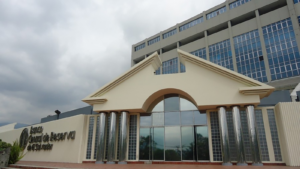
In the last decade, technologies and new ideas have driven global economic growth, but Latin America and the Caribbean (LAC) have failed to adapt their labor market to keep pace with these changes, according to the World Bank. Young people entering the labor market are finding jobs of the same quality as almost ten years ago, which represents a critical challenge for a region with low economic growth and persistent poverty.
The World Bank’s Employment Quality Index (EQI) paints a discouraging picture. Although countries such as Brazil, Colombia, Costa Rica, El Salvador and Mexico have registered slight improvements, the quality of employment in the region has seen little or no progress. Working conditions in many countries have stagnated or even deteriorated, with significant disparities between men and women. Women face greater difficulties: they are 5% more likely than men to have unstable jobs and lack access to equitable employment benefits.

This job stagnation is closely linked to the region’s weak economic performance. With growth projections of only 1.9% in 2024 and 2.6% in 2025, LAC is the region with the lowest economic growth in the world. These figures reflect a lack of sufficient momentum to generate significant changes in the quality of employment.
Against this backdrop, the World Bank proposes labor reforms that prioritize fair wages, job security and decent working conditions. Ensuring effective enforcement of labor laws and extending social protection to all workers are essential steps to closing the existing gaps.

Moreover, digitalization plays a key role in this transformation. Improving digital infrastructure, ensuring accessible connectivity and encouraging the adoption of digital technologies by workers and companies can boost productivity and the quality of jobs. Equity in access to these tools is key to reducing labor gaps.
In summary, job quality in Latin America requires urgent attention. Only through structural reforms, investments in digitalization and the promotion of labor equality can the region move towards a fairer, more competitive labor market adapted to the demands of the 21st century.







